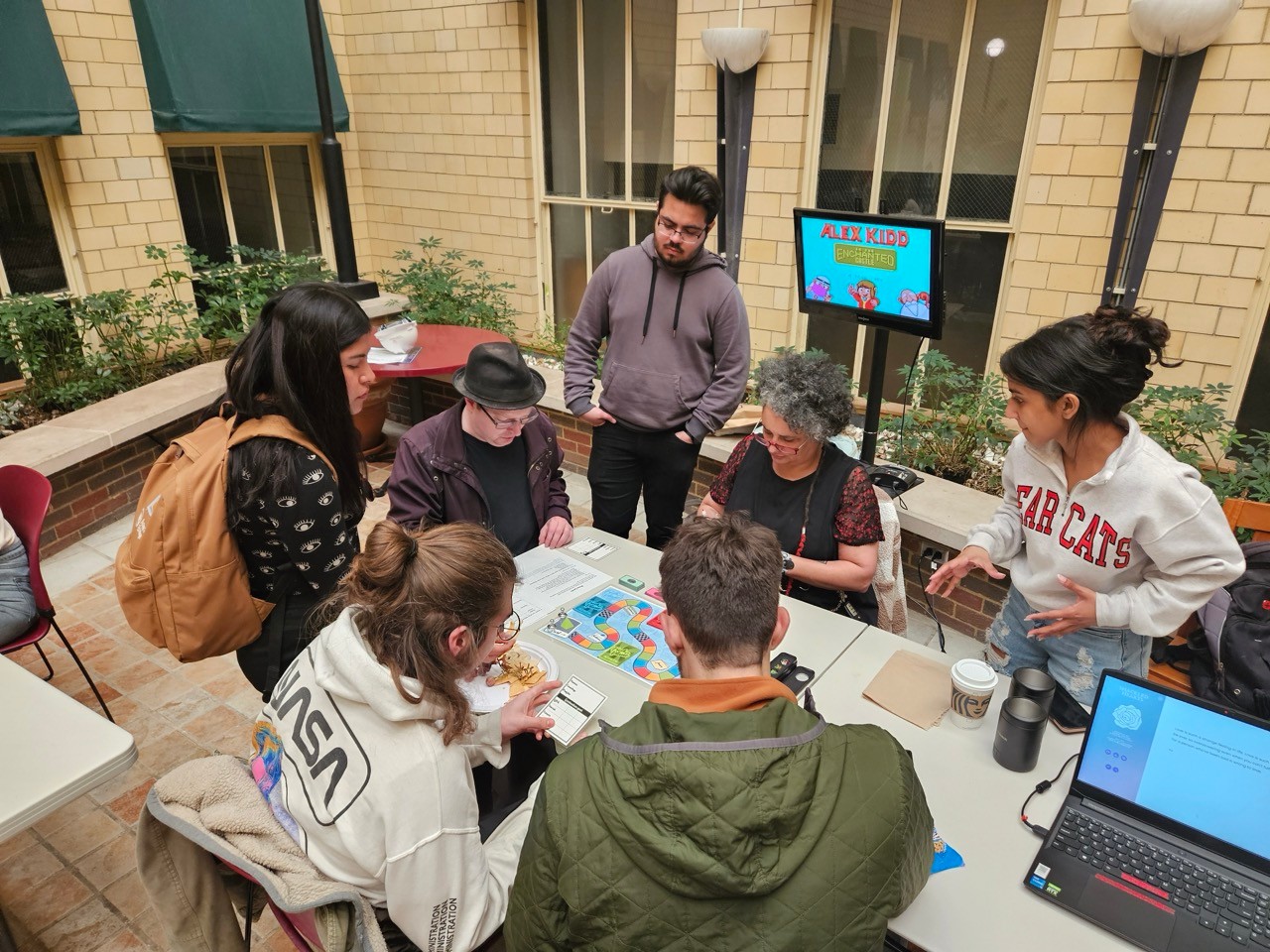FILM3018/DMC3018: Decolonial Game Design

Instructors: Dr. Evan Torner & Dr. Eliane Bettocchi
Why Take This Course?
What you'll do in this course:
- Play games, and design them
- Collaborate with students in Brazil
- Use the resources available at the UC Game Lab
Try this course if you:
- Enjoy games or content about them
- Get excited about cross-cultural dialogue
- Find Settlers of Catan irritating
Full Description
Game design, both analog and digital, is a diverse and expanding field within our cultural moment, with global constituents and near-universal appeal. Yet roughly 70% of game developers in the United States, at least, identify as white and/or male. This stubborn fact limits the reach and relevance of games as a medium. In particular, the multi-century of colonialism has left us with clear divisions not only between a cultural-economic Global North and Global South, but also with a clearly colonial viewpoint reified in the games themselves. Most games enact, in some way, violence that allows players to fictionally appropriate resources for themselves. Most games instantiate, in some way, fantasies of control, dominance, and cultural homogenization. Most games do not fully acknowledge human difference and interlocking systems that reinforce social inequality.
This course asks the questions: How can we design games differently? How can we foster dialogue between students in the American Midwest and Global South, an intercultural exchange premised on games as a medium for dialogue and communication? How can we work to critique and decolonize game design, so as to create more space for others whose voices are not so often heard?
This Honors seminar requires the students learn the basics of decolonial critique and game design, and then apply those theories and methods in the development of their own decolonial games in dialogue with students from Brazil (as well as their own experiences in both the USA and Brazil). Students will start by situating both the United States and Brazil within frameworks of colonialism and racialized capitalism, which also constitutes a useful framework for understanding the respective game cultures between Global North and Global South. Then students will play and critique a variety of games that represent both normative assumptions about colonial operations as well as those games that question those assumptions. During this time, students will begin collaborating with students from Brazil on a shared game project, as well as go on trips local (and abroad, when possible) to enrich their understanding of the source material. Students will reflect on these experiences as well as their assumptions toward gaming and culture. As a final project, they will collaboratively design analog or digital games that express their new understanding of colonial relations and Global South positionalities.
%20Large.jpeg)
%20Large.jpeg)